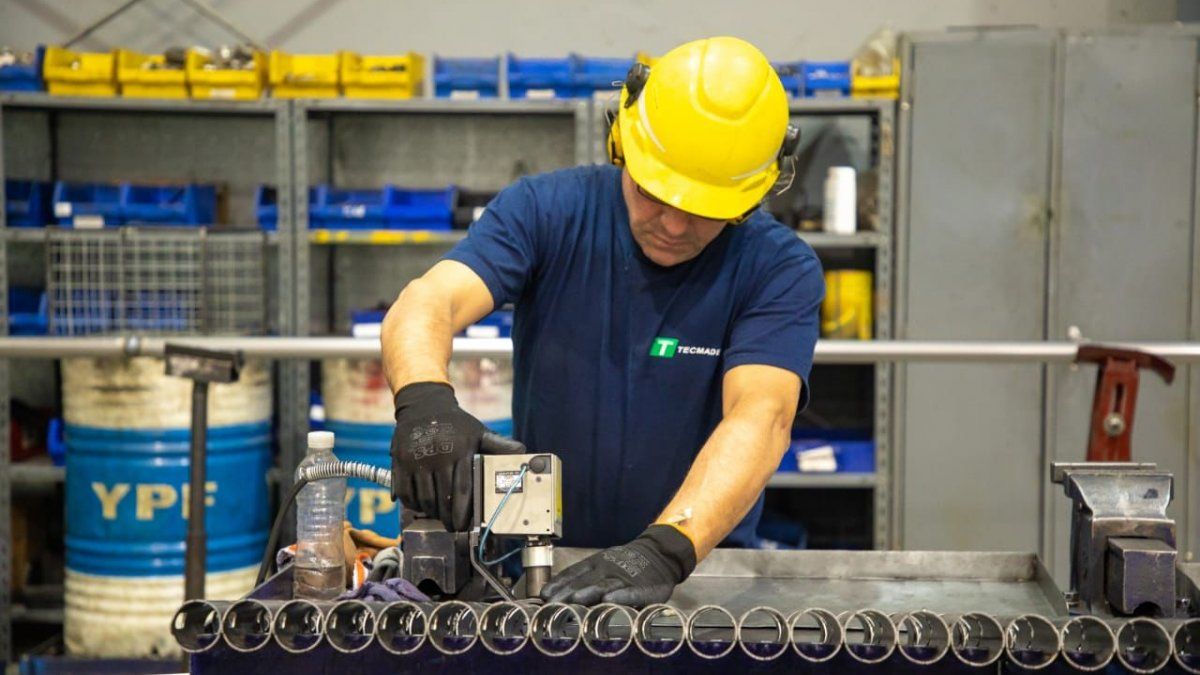The 22% devaluation in one day of the official exchange rate carried out last Monday after the STEP generated days of uncertainty, with lists without prices and brakes on sales. Now the big concern of SMEs it is having to face the payment of invoices at the new exchange rate, despite having already sold the merchandise, for which they fear being decapitalized.
Marcelo Fernandezpresident of the Business Confederation (Cgera), assured Ambit that are in negotiations with the Ministry of Economy this topic. “We are asking that SMEs do not have to absorb the devaluation, in the cases in which there were sales until Friday before PASO, and that the payment was not made,” he said.
Regarding the problems generated by the exchange rate jump, he explained: “The large companies that provide us with inputs are asking to pay the price difference of an exchange rate that jumped from $280 to $350. The problem is that much of that merchandise has already been produced and delivered. They have to do something because, if not, they destroy our working capital”.
The request of the industrial SMEs to the Economy arises so that the ministry intercedes before the transfers of the large suppliers of industrial inputs. “We are requesting that they regulate these increases and cushion the devaluation, because other costs, such as tariffs, were not devalued to that magnitude,” added Fernández.
The post-PASO official exchange rate devaluation was a deja vu of 2019 for companies, where there were also days where sales stopped due to lack of prices. According to private sector sources, some reactivated the operation between Wednesday and Thursday of last week.
What happens these days is a wave of debit notes as a result of the exchange difference. There are sectors, such as the oil tanker, where the contracts are in dollars, tied to the official exchange rate on the closing day of the issuance of that invoice. Payments are made between 30, 45 or 60 days. However, even if the bills were made before the elections, there are clauses that are triggered by exchange differences. Hence, what will begin to circulate these days are the debit notes that make a difference.
In this context, the SME business chambers came out with statements to express their situation. The chamber of the small and medium-sized metallurgical industry (Camima) warned that “commercial and industrial transactions were paralyzed.” In addition, they warned that there are companies that “have debts in dollars, for which today they have to pay 25% more.”
For its part, the Federation of Commerce and Industry (Fecoba) indicated in a statement that after the primary elections 75% of the merchants suffered increases of between 10 and 25% in the list prices of their inputs, while 13% came to perceive increases of up to 50%, and then 5% registered increases of more than 75%. For this reason, they revealed that 81% of the businesses corrected the sale prices of their products up to three times during August.
The consequences are already beginning to be seen in consumption. In Fecoba they indicated that 75% responded that they have problems replenishing goods and stock, and 40% stated that sales dropped in the last week.
In the context of uncertainty, industrial SMEs claim to know the plans of the presidential candidates, a theme that is rarely present in the speeches. From the entity Industriales Pymes (IPA) they approached a formal invitation to the candidates to attend an industrial congress that the entity is organizing this week in La Rural.
Source: Ambito




